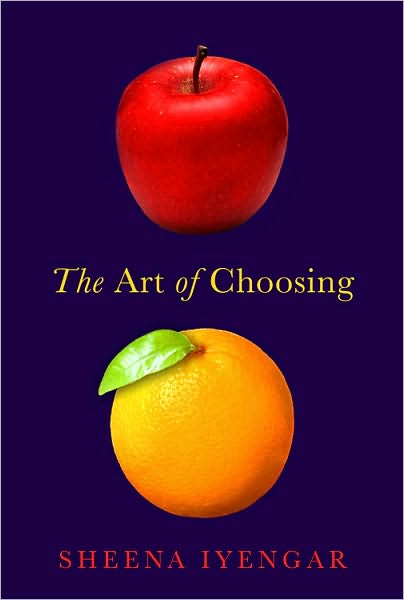
The freedom to choose makes us happy, except when it doesn’t. Sheena Iyengar’s The Art of Choosing traces the border between the choices we like, and the choices we don’t like. What determines how happy a choice makes us feel?
Culture is a factor. Culture doesn’t just affect, for instance, how much power a parent expects to have over their children’s marriage, it affects how the children feel about it too. Choice you’re not culturally primed for can make you uncomfortable. The idea that everyone should be the ultimate authority over their own lives is morally better, but it’s not inborn: it’s learned.
Even in cultures that value choice highly, there are some choices we might not want to make, such as life and death decisions. And sometimes the amount of choice becomes overwhelming. Choosing between hundreds of different variants of a product, such as a computer, is only fun when you feel qualified to tell the difference.
But this too is learned behavior: Anyone can learn to deal with difficult choices. We can choose smart ways to choose. But any amount of choice doesn’t automatically make anyone happier.
My favorite text on choice is the discourses of Epictetus, from around 100 AD. He argued that choice made people unhappy when they attached too much importance to the uncontrollable consequences of their choices. Basically, if something is not up to you, don’t worry about it. Iyengar deals with many of the same questions, but takes a descriptive rather than a prescriptive approach.